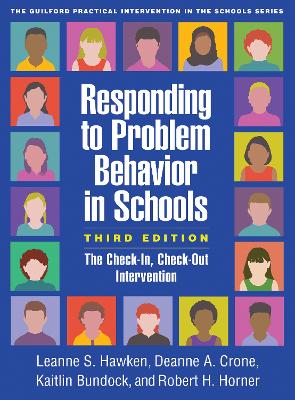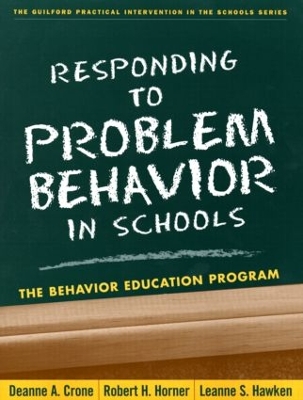Guilford Practical Intervention in the Schools
3 total works
Responding to Problem Behavior in Schools
by Leanne S. Hawken, Deanne A. Crone, Kaitlin Bundock, and Robert H. Horner
Now revised and expanded with the latest research and adaptations for additional target behaviors, this is the gold-standard guide to Check-In, Check-Out (CICO), the most widely implemented Tier 2 behavior intervention. CICO is designed for the approximately 10–15% of students who fail to meet schoolwide behavioral expectations but who do not require intensive, individualized supports. In a large-size format for easy photocopying, the book includes step-by-step procedures and reproducible tools for planning and implementation. At the companion website, purchasers can download and print the reproducible tools and can access online-only training materials, sample daily progress reports, and an Excel database for managing daily data. (Second edition subtitle: The Behavior Education Program.)
New to This Edition
*Chapters on CICO in alternative educational settings and for students with internalizing behavior problems.
*Content on using CICO for attendance issues, academic and organizational skills, and recess behavior problems.
*Chapter on layering additional targeted interventions onto CICO.
*Chapter with specific recommendations for training and coaching school teams.
*Expanded chapters on frequently asked questions, implementation in high school, and culturally responsive practices.
*Supplemental online-only training and data management tools.
*Updated throughout with current data and evidence-based procedures.
See also Dr. Hawken's training DVD, Check-In, Check-Out, Second Edition: A Tier 2 Intervention for Students at Risk. Also available: the authors' work on intensive interventions for severe problem behavior, Building Positive Behavior Support Systems in Schools, Second Edition: Functional Behavioral Assessment.
This book is in The Guilford Practical Intervention in the Schools Series, edited by Sandra M. Chafouleas.
Responding to Problem Behavior in Schools
by Deanne A. Crone, Leanne S. Hawken, and Robert H. Horner


